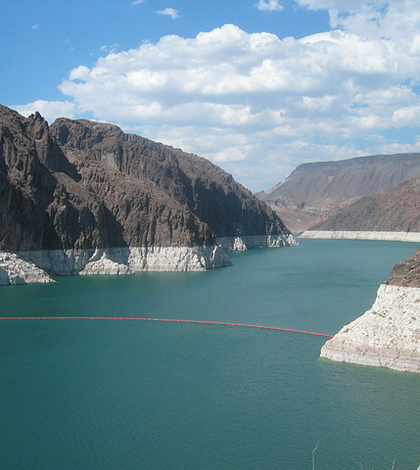Lake Mead Levels Dropping 12 Feet Each Year

A report from the Colorado River Research Group finds that the water levels of Lake Mead, an important source of water for the U.S. West, are dropping 12 feet each year, according to Rocky Mountain PBS I-News. The finding means that curtailing withdrawals from the lake, if it hit a pre-set regulatory limit, would not be enough to stem a continued drop in levels.
One limit, at 1,075 feet above sea level, would make it possible to declare a shortage of water on the Colorado River. Another 50 feet drop from there and deliveries of water to the states of Arizona, California and Nevada would be limited by 500,000 acre-feet.
Experts from the research group say that Lake Mead has been suffering a 1.2 million acre-feet shortage of water each of the last 15 years, when considering how much it receives from the river and how much it sends to the West. So the math is simple, they say. Cutting water going out of the lake wouldn’t be enough to stop its decline.
If such a scenario were to play out, the next level of importance would be 1,000 feet above sea level, at which point the agreement determining how the lake’s water gets used would be re-negotiated.
Top image: Lake Mead (Credit: kyle simourd, via Flickr)




0 comments